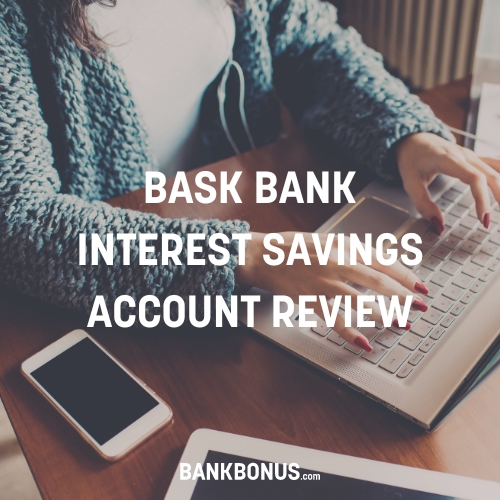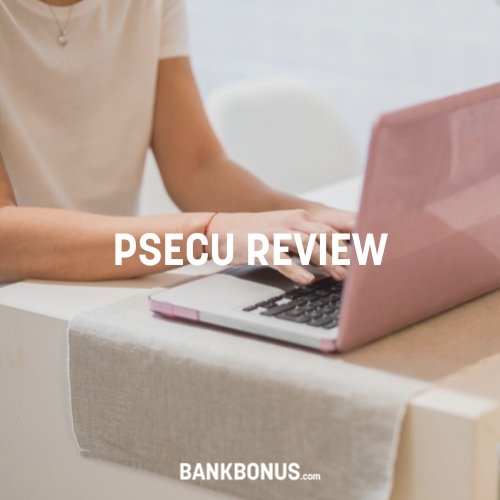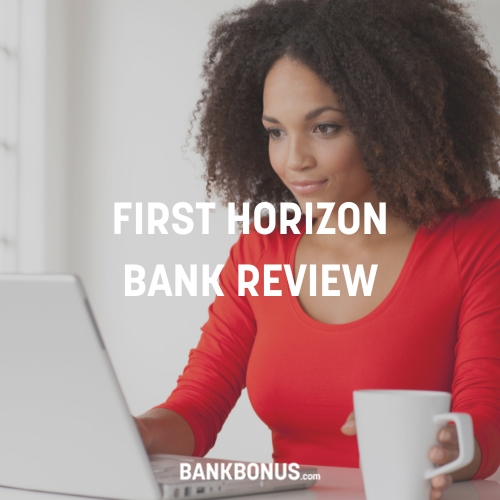I’m always on the lookout for cool, under-the-radar banks. If you live within its seven-state service area, First National Bank fits the bill. From a full-service online banking platform to dozens of account options and financial services, you’ll find everything you need from this regional banking partner.
This post contains a full review of First National Bank, including its most popular products and services, where it shines, and which types of customers it might serve best. To start things off, let’s talk about what this bank is all about.
About First National Bank
First National Bank, also known as FNB, is the largest subsidiary of the FNB Corporation. It’s a consumer bank based in Pittsburgh, offering bank accounts, credit cards, investment services, and more.
FNB has been around since 1864 when it was founded as First National Bank of Pennsylvania. Since then, the company has grown and expanded into various financial products and services, operating branches in six additional states: Ohio, Maryland, West Virginia, North Carolina, South Carolina, Virginia, and Washington, D.C.
Now, let’s take a closer look at the features you can use as an FNB customer.
Features
Online Banking
Though FNB operates as a more traditional bank, it does feature a full-service online banking platform. Just log in on the website or app, and you have full access to all of your FNB accounts. You can easily check your balances, move money around, and even monitor your credit score with the FNB online credit center.
FNB also features some useful online functionality for new customers, including its eStore, a handy online tool to help you choose the right accounts and services for you. Whether you’re opening a checking account, applying for a personal loan, or looking into a new credit card, you can handle that in the eStore.
Mobile App
The FNB app is available on both iOS and Android. You can access all of your accounts right from your smartphone. Fortunately, the app seems to work well on both operating systems. FNB Direct currently holds a 4.4-star rating in the Google Play Store, and a similarly impressive 4.8 stars in the App Store.
350+ Bank Branches
FNB operates more than 350 branches, which are scattered throughout its seven-state service area. Though their total number of branches can’t compete with huge national competitors, 350 branches in a relatively small region is nothing to scoff at. If having in-person support is important to you, be sure to check out the FNB online branch locator to see if there’s one nearby.
1,350+ ATMs
In addition to its brick-and-mortar branch locations, FNB has more than 1,350 branded ATMs throughout its service area. This is significant because FNB charges a fee for any out-of-network ATM use. So, if you’re the type of person that likes to have cash in hand, search for a FNB location ahead of time to make sure you don’t pay out-of-network ATM fees.
FNB Checking Accounts
FNB offers a wide variety of checking accounts, and each one might be suited to a different type of banking customer. That said, there are certain features that come with all five accounts, including a debit card, online banking, direct deposit, and a digital payment platform.
Let’s take a look at each checking account a little more closely.
eStyle Account
The eStyle checking account is a checkless option that’s perfect for those looking to avoid monthly service fees. It’s an overdraft fee-free account, and the trade off is that you won’t have access to any paper checks. With this in mind, you can think of eStyle as a digital checking account.
eStyle Plus Account
eStyle Plus is similar to the standard version, with key differences. It’s still checkless but comes with the addition of an annual percentage yield (APY) of 0.10%. Unfortunately, in exchange for the interest rate, there’s a $25 monthly fee tacked on. You can avoid this fee by keeping a balance of at least $1,000 in your account or at least $25,000 across qualifying FNB products, so this option is not recommended unless you can consistently stay above that threshold.
Freestyle Checking
Freestyle Checking is FNB’s standard checking account, and it should work well for most basic checking needs. The account has no monthly service fee or minimum balance requirements, and it comes with the added perk of unlimited check writing. Otherwise, it’s a pretty standard checking account that should serve you well.
Lifestyle Checking
Lifestyle Checking is an upgraded version of Freestyle, and earns a small APY if your balance is greater than $2,500. You also get a free safe deposit box at your local branch, plus your first order of 40 custom checks on the house.
The monthly service charge is $10, and you can get around it if you keep a checking balance of at least $1,000 or a combined account balance of $10,000 or more.
Premierstyle Checking
Premierstyle Checking is FNB’s highest tier checking account, and it serves as an upgraded version of Lifestyle. In addition to the safe deposit box and APY, you get unlimited free checks, refunds on all FNB ATM fees, and $15 per month in rebates for ATM fees from other banks.
However, the extra benefits come at a price, and you need at least $7,500 in your account to avoid the $25 monthly fee.
FNB Savings Accounts
FNB’s selection of personal savings accounts isn’t quite as robust as its checking offerings, but it still shows up with some solid options. You can easily link any savings account to your FNB checking, and each option comes with access to online and mobile banking.
FirstRate Savings Account
FirstRate Savings is a standard savings account that comes with a $5 monthly charge. To avoid paying it, just keep at least $500 in your account at all times. There’s no minimum deposit requirement if you open in-branch, but you need at least $50 if you open online.
FirstRate Savings comes with a tiered APY, which means that you should earn more in interest as your balance grows. Unfortunately, at the moment, every tier earns the same paltry APY of 0.05%. If you’re looking for APY that outpaces the national average, you’re better off looking into FNB’s Money Market account, or a fully online savings account.
Health Savings Account (HSA)
If you want to put some money aside for medical expenses, you can also consider a Health Savings Account (HSA). There’s no minimum balance requirement, and you won’t pay the annual fee if you already have an FNB checking account. However, the HSA only earns 0.05% on interest, so don’t expect to see your money grow much.
FNB Certificates of Deposit (CDs)
If you have the flexibility to stash some money away for the short or long term, you might want to consider a fixed-rate CD. These accounts come with some of FNB’s best interest rates, so they’re a great way to grow the money you don’t need access to right away.
Standard CD
FNB Standard CDs come with terms ranging from three to 60 months, and typically the APY increases the longer you commit. You need at least $500 to open a CD.
Savers Goal CD
The Savers Goal account is designed for those looking to instill some better savings habits. Unlike a standard CD, which only allows for one deposit, the Savers Goal CD allows for additional deposits throughout the 12-month term. In fact, the account even holds you accountable by requiring a minimum transfer of at least $25 per month to keep it open. The only downside here is that the CD rate leaves a bit to be desired, as it comes in at 0.05%, no matter your balance.
CD Specials
FNB also offers promotional CD rates for specific terms under its CD specials. These offers may change frequently, so it’s important to jump on one if you find something you like. To qualify for a special rate, you need to deposit at least $5,000 into the account ($10,000 for the 7-mo CD Special), but if you can manage that, you’ll get the best rates that FNB has to offer. Take a look at the current tiers:
| Product | APY | Min Deposit |
|---|
*APY may vary by zip code. Rates below reflect zip code 15108 on September 01, 2023.
Flex CD
A Flex CD is a great option if you like the idea of a CD, but you’re unsure if you can commit long term. The account comes with a 9-month term, but you can withdraw funds once per month without getting hit with an early withdrawal fee. You need at least $500 to open a Flex account.
FNB FirstRate Money Market Account
FirstRate Money Market is a flexible savings account that allows for check writing. The monthly service fee is $10, and you need at least $5,000 in the account to avoid paying it.
Like FirstRate Savings, it comes with a tiered APY. And, unlike FirstRate Savings, those tiers actually reward you for having a higher balance. Here’s a look at the current breakdown:
- $0 – $9,999.99 balance: 0.25%
- $10,000.00 – $24,999.99 balance: 0.50%
- $25,000.00 – $49,999.99 balance: 0.50%
- $50,000.00 – $99,999.99 balance: 1.00%
- $100,000.00 – $999,999.99 balance: 1.25%
- $1,000,000.00+ balance: 1.25%
- ($50,000.00 – $500,000: 5.00% when opening an account before 12/31/2023)
*APY may vary by zip code. Rates below reflect zip code 15106 on November 28, 2023.
Pricing and Fees
FNB is far from a fee-free bank, but the good news is that most of the fees are avoidable. The key is to be aware of them, as well as your personal banking habits, so you can take advantage of FNB perks without coughing up anything extra.
Here are the most common banking fees that you’ll run into with FNB.
Monthly Service Fees
Most FNB deposit accounts come with a monthly fee. However, there are multiple checking accounts that are fee-free. Plus, each of the accounts that does charge a fee also comes with a path to getting it waived. Before you sign up for any account, be sure to check on the minimum balance requirement to avoid the fee, and always choose one that you can keep up with.
ATM Fees
FNB has a good amount of fee-free ATMs in its service area, but if you have to use one that’s out of network, you’ll pay an FNB-imposed fee. This is in addition to whatever the ATM itself charges, so always use a branded FNB option when you can.
Overdraft Fees
Much like its monthly service charges, FNB comes with multiple accounts that come without any overdraft fees at all. If you’re concerned about this, you should check out one of its eStyle checking accounts, which both fall in that category. Otherwise, FNB does charge a fee if you overdraw your account.
Disclaimer: FNB will decline or return transactions when you do not have sufficient funds available in your account to cover a transaction, but cannot prevent your account from being overdrawn. If your account is overdrawn, you will not be charged an overdraft fee. You are responsible for any transactions that overdraw your account and return your account to a positive balance.
Getting Started
When you’re ready to sign up for a new account, you can get started online or stop by your local FNB branch. If you’re new to the bank, we recommend checking out the online eStore, which provides an easy look at every banking product that FNB has to offer.
Once you’ve settled on the accounts you want to open, you can apply in just a few minutes. Be sure to come prepared with all of your necessary documents, along with account information for your initial funding.
Promotions
Unfortunately, there are currently no active First National Bank of Pennsylvania promotions. Check out these bonus offers instead:
| Bank | Bonus | Expires | Requirements | |
|---|---|---|---|---|
| up to $3000 | September 30, 2025 |
|
Learn More | |
| $400 Cash Bonus* | September 8, 2025 |
|
Learn More | |
| up to $500 | October 16, 2025 |
|
Learn More |
Security
To start, FNB is an FDIC-insured institution, so all of your deposits are protected to the full amount of up to $250,000. Otherwise, FNB employs a variety of systems and teams to safeguard your accounts against hackers, phishing schemes, and any other unauthorized account access.
FNB also provides some useful information about how you can help protect your accounts, which you can find through its online security center.
Customer Service
When you’re in need of assistance, you have several different options for how to get in touch. Of course, you can always stop by a branch during business hours, or schedule an appointment ahead of time to cut down on the wait. Or, for quicker answers, you can consult the FNB online help center and search through its FAQs.
If you want to get someone on the phone, FNB customer service is available from 8 am to 9 pm on weekdays, and 8 am to 5 pm on weekends. You can reach them at 1-800-555-5545.
Pros and Cons
Pros
- Plenty of branches and ATMs
- Tons of account options
- Solid Money Market and CD rates
Cons
- Lots of fees
- Low savings rates
- Limited customer reviews
Alternatives to FNB
PNC Bank
PNC is one of the biggest banks in the country, and it covers much of the same service area as FNB. If you’re looking for a larger option that still operates in your area, PNC is a good bet. It has a large selection of both online and traditional accounts and comes with all the bells and whistles that you can expect from a national powerhouse.
Chime
On the other hand, if what you’re after are some top-tier APYs and the digital convenience of an online bank, you won’t do much better than Chime. Chime has no physical branches, but it makes up for it with a 2.00% APY and absolutely no account fees.
PSECU Federal Credit Union
PSECU is the largest credit union in Pennsylvania and serves as a great option if you prefer credit unions to banks. PSECU is open for membership to all PA residents, and comes with lower fees and higher interest rates than you’ll see at most banks.
Frequently Asked Questions
Is First National a good bank?
Yes. It’s one of the most popular banks in Pennsylvania and offers a comprehensive portfolio of accounts and services. The bank has been around for over a hundred years, so you can trust that it knows what it’s doing.
What bank owns First National?
FNB is a member-FDIC bank that’s owned by its parent company, FNB Corporation.
Is First National Bank the same as Bank of America?
No. They are entirely different banks and are not affiliated with each other at all.
Are accounts with First National Bank Insured?
Yes. FNB is a member-FDIC institution, so all of your deposit accounts with the bank are protected.
Is First National Bank Right For You?
FNB is a regional bank that does a lot of things well. It offers accounts for all different types of banking customers, which allows you to tailor the right ones to your own personal financial situation. It also features a ton of branches and ATMs within its service area, so in-person support is always within reach.
However, there are a few downsides that you need to consider before picking FNB as your banking partner. FNB does not shy away from banking fees. Even though they are all avoidable, you’ll still need to be aware of them.
When it comes to savings, the bottom line is that FNB is not going to provide the best interest rates. That said, its Money Market and CD rates are preferable to those of bigger national banks, even if they can’t keep up with online competitors.
At the end of the day, if you live within the service area, you could do far worse than FNB.
Disclaimer: Online Banking, Bill Pay, Mobile Banking, and Telephone Banking are free to customers with an eligible account; however, there may be a fee for certain optional services. Mobile data and carrier fees may apply. Member FDIC.





No comments yet. Add your own